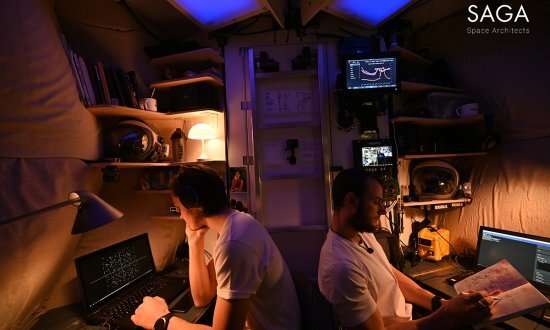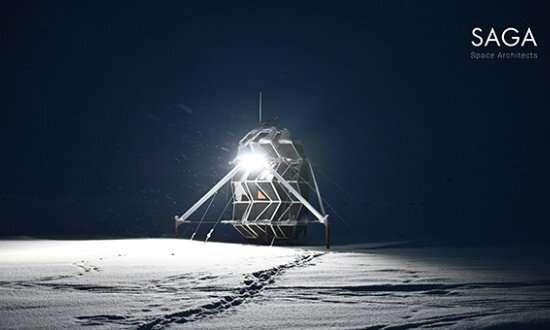self-esteem and control), behavioral intentions (for example, whether they developed aggressive tendencies) and coping strategies. To record this data, Sebastian and Karl-Johan kept daily diaries and completed a 20-minute questionnaire daily.

Konstantin Chterev, Psychology Ph.D. student at Surrey and co-author of the study, said:
"Research to address the technical challenges of human missions into space is growing at a rapid rate. Therefore, it is critical that we explore the social-psychological aspects of individuals' experiences of confinement within these habitats. We know that social isolation is among one of the main risk factors in these environments, but we still have a lot to learn."
The two space architects were limited in how much they could communicate with the outside world. They had no access to the internet but could use a satellite phone to send daily messages (up to 160 characters) to the headquarters in Copenhagen, Denmark.
The results showed that, for both space architects, their desire for social contact increased over time, whereas negative feelings of alienation, depression, helplessness, and unworthiness did not. Talking about personal matters and engaging in leisure time was associated with a decrease in these negative feelings, but also increased the desire for social contact. Furthermore, engaging in leisure activities increased the perceived speed of time.
"Space travel will likely become more frequent in the next few decades, due to the opening of the private market, NASA's plans to send people to the moon this decade, and government agencies in China and India joining the space travel race. With more organizations involved in sending people to space, we need more studies to focus on the mental health impacts involved in long missions in extreme and confined environments. Work like this will be able to inform future training and the planning of schedules in extreme environment expeditions and lunar missions, in which it is crucial to balance mission-critical tasks and physical well-being with protecting psychological well-being and mitigating the negative effects of long-term isolation."
Explore further



